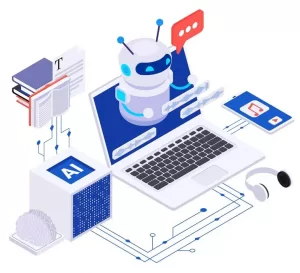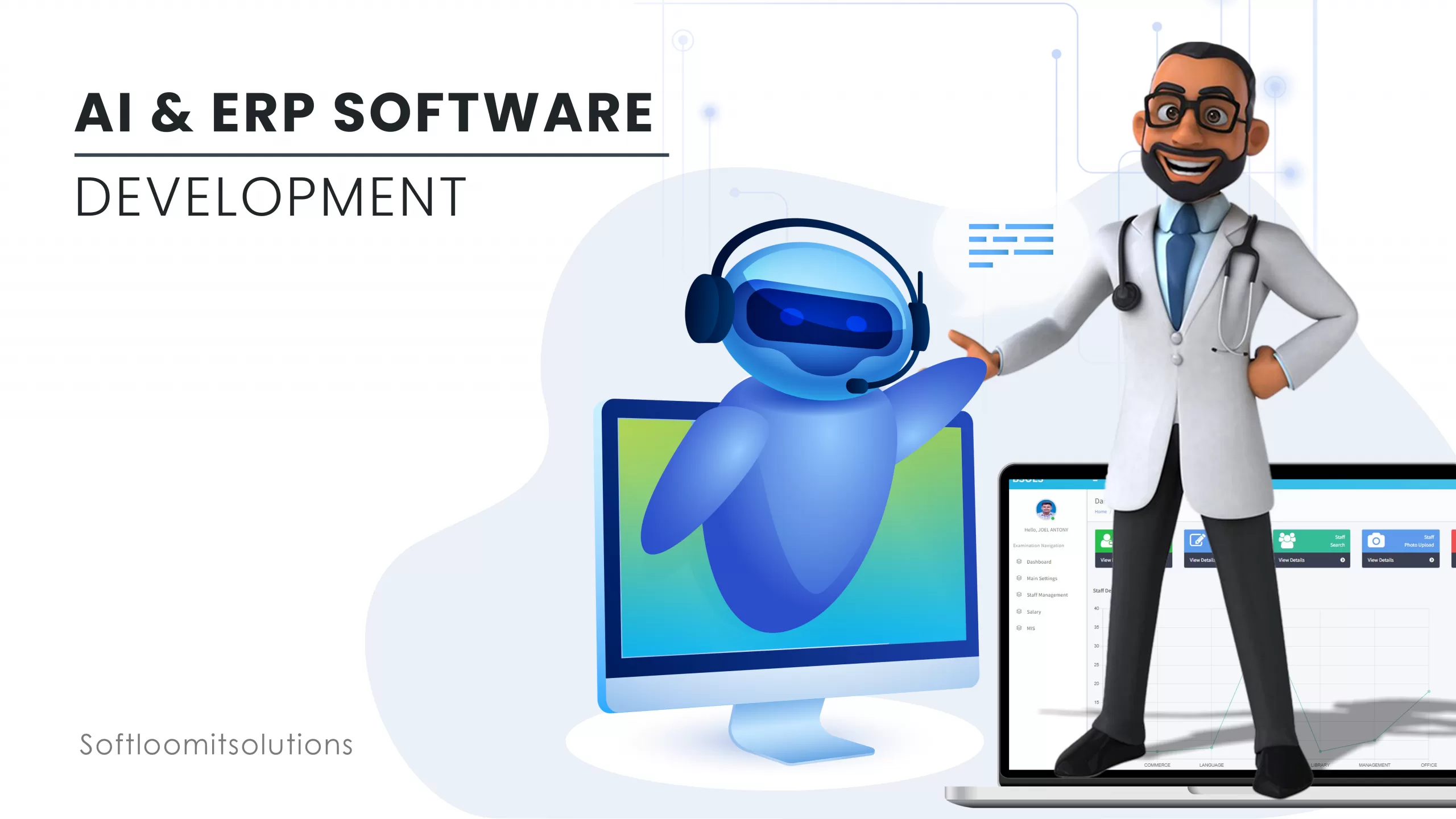AI (Artificial Intelligence) is becoming increasingly integrated into enterprise resource planning (ERP) software as technology continues to evolve. ERP software plays a crucial role in managing business processes efficiently. With the integration of artificial intelligence, ERP systems will revolutionize how businesses operate and make decisions.
Understanding ERP Software:
- ERP software integrates core business processes such as finance, HR, inventory management, supply chain, and more into a single system.
- It enhances collaboration, streamlines operations, and provides real-time insights to facilitate informed decision-making.
The Emergence of AI in ERP:
- AI technologies, including machine learning, natural language processing, and predictive analytics, are being incorporated into ERP systems.
- These technologies enable ERP software to analyze vast amounts of data, identify patterns, predict outcomes, and automate tasks intelligently.
Key Impacts of AI on ERP Software:

a. Enhanced Data Analysis:
- AI-driven ERP systems can analyze complex data sets quickly and accurately.
- They provide deeper insights into business performance, customer behavior, and market trends, enabling better strategic planning.
b. Predictive Capabilities:
- AI algorithms can forecast future trends, demand patterns, and potential risks.
- This helps businesses optimize inventory levels, anticipate customer needs, and mitigate risks proactively.
c. Automation of Routine Tasks:
- AI automates repetitive and mundane tasks, freeing up human resources for more strategic activities.
- Tasks such as data entry, invoice processing, and inventory management can be performed with higher efficiency and accuracy.
d. Personalized User Experience:
- AI-powered ERP systems can customize user interfaces based on individual preferences and roles.
- This improves user experience, increases productivity, and reduces training time for employees.
e. Industry-Specific Applications:
- AI-driven ERP system are tailored to meet the specific needs of different industries.
- For example, in manufacturing, AI can optimize production schedules and predict equipment maintenance needs.
- In healthcare, AI-enabled ERP systems can enhance patient care by analyzing medical data and optimizing resource allocation.
Challenges and Considerations:
a. Data Security and Privacy:
- The integration of AI introduces new challenges related to data security and privacy.
- Businesses must implement robust security measures to protect sensitive information from cyber threats and breaches.
b. Skill Gap:
- AI implementation requires specialized skills in data science, machine learning, and AI development.
- Businesses need to invest in training their workforce or hire experts to effectively utilize AI in ERP systems.
c. Integration Complexity:
- Integrating AI with existing ERP systems can be complex and time-consuming.
- Businesses should carefully plan the integration process and ensure compatibility with existing infrastructure.
Future Outlook:
- The synergy between AI and ERP software is expected to continue evolving.
- As AI technologies advance, ERP systems will become more intelligent, adaptive, and capable of driving further innovation in business processes.
Conclusion:
AI is undeniably shaping the future of ERP software, revolutionizing how businesses and educational institutions, including colleges, manage operations, analyze data, and make decisions. By leveraging AI capabilities, businesses and colleges alike can gain a competitive edge, improve efficiency, and adapt to the ever-changing market dynamics. However, successful implementation in college ERP software requires careful planning, investment in skills development, and a commitment to data security. As AI continues to advance, the potential for innovation and transformation in ERP software remains limitless, promising enhanced administrative processes, streamlined student services, and improved academic outcomes.






